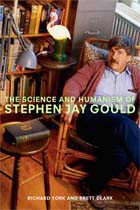Want to know what a sustainable climate-change-proof agricultural system might look like? Here’s an example from Cuba, in an academic paper written by my friend, comrade and former boss, Peter Rosset, together with folk from Cuba’s peasant agriculture movement. The article’s free to download (for now), but the key parts from the abstract are:
Our key findings are (i) the spread of agroecology was rapid and successful largely due to the social process methodology and social movement dynamics, (ii) farming practices evolved over time and contributed to significantly increased relative and absolute production by the peasant sector, and (iii) those practices resulted in additional benefits including resilience to climate change.
environment
The food price crisis and the Egyptian revolution

Since 2008, rising food prices have resulted in 40 mass riots throughout the globe and the United Nations reports that 37 countries currently face a food crisis.
By Billy Wharton
February 14, 2011 -- Socialist Webzine -- Hidden beneath the spectacular street battles that forced the Egyptian dictator Hosni Mubarak out of office was a trigger that exists in dozens of countries throughout the world – food. Or, more specifically, the lack of it. While commentators focus on the corruption of the dictatorship, or the viral effects of the Tunisian moment or the something akin to an Arab political awakening, the inability of the Egyptian regime to ensure a steady flow of food staples should be viewed as a critical factor driving this seemingly spontaneous movement for freedom.

January 26, 2011 – Links International Journal of Socialist Renewal, with the kind permission of

The following article was recommended by Raj Patel. Patel writes:
The futility of green capitalism: Interview with Daniel Tanuro
January 17, 2011 -- Climate & Capitalism -- Daniel Tanuro’s new book, L’impossible capitalisme vert,or “The Futility of Green Capitalism”, is a major contribution to our analytical understanding of ecosocialism. Tanuro, a Belgian Marxist and certified agriculturist, is a prolific author on environmental history and policies.
Addressed primarily to the Green milieu, as the title indicates, this book is a powerful refutation of the major proposals advanced to resolve the climate crisis that fail to challenge the profit drive and accumulation dynamic of capital. Much of the book appears to be a substantially expanded update of a report by Tanuro adopted in 2009 by the leadership of the Fourth International as a basis for international discussion. That report was translated by Ian Angus and included in his anthology The Global Fight for Climate Justice.
Capitalism and degrowth: An impossibility theorem

By John Bellamy Foster
January 2011 -- Monthly Review -- In the opening paragraph to his 2009 book, Storms of My Grandchildren, James Hansen, the world’s foremost scientific authority on global warming, declared: “Planet Earth, creation, the world in which civilization developed, the world with climate patterns that we know and stable shorelines, is in imminent peril…The startling conclusion is that continued exploitation of all fossil fuels on Earth threatens not only the other millions of species on the planet but also the survival of humanity itself—and the timetable is shorter than we thought.”1
Fred Magdoff: Creating an ecological civilisation

By Fred Magdoff
``It is inconceivable that capitalism itself will lead directly to an ecological civilization that provides the basic needs for all people. However, building an ecological civilization that is socially just will not automatically happen in post-capitalist societies. It will occur only through the concerted action and constant vigilance of an engaged population.''
January 2011 -- Monthly Review -- Given the overwhelming harm being done to the world’s environment and to its people, it is essential today to consider how we might organize a truly ecological civilization—one that exists in harmony with natural systems—instead of trying to overwhelm and dominate nature. This is not just an ethical issue; it is essential for our survival as a species and the survival of many other species that we reverse the degradation of the earth’s life support systems that once provided dependable climate, clean air, clean water (fresh and ocean), bountiful oceans, and healthy and productive soils.
`Development', capitalism, NGOs and people's movements in Bangladesh: an interview with Anu Muhammad

US warplanes take off from Diego Garcia.
[Read the Mauritian socialists' open letter to Greenpeace -- `Don't help cover up colonialism's crimes on Diego Garcia' HERE, warning the organisation that it is being manipulated by the US and British governments. This has now been confirmed by Wikileaks.]
By Clency Lebrasse
December 17, 2010 -- Rabble.ca -- Six months ago, I wrote a piece for rabble.ca describing the appalling treatment of the people of the Chagos Islands [which includes Diego Garcia] in the Indian Ocean by the British government.
Essential guide for green left activists
Derek Wall discusses the crisis in the financial system, wall is an activist in Green Left, an ecosocialist current in the Green Party of England and Wales. Filmed at the Coalition of Resistance (http://www.coalitionofresistance.org.uk) conference November 27, 2010.
The Rise of the Green Left: Inside the Worldwide Ecosocialist Movement
By Derek Wall
Pluto Press, 190 pages, paperback
Review by Mat Ward
`Leave the oil in the soil!' -- Oil curses, climate conferences and fake Norwegian ‘Good Samaritans’

A humpback whale at the Bluff Whaling Station, South Durban, in 1909. From "Facts About Durban".
By Patrick Bond
November 23, 2010 -- Links International Journal of Socialist Renewal -- The stench of rotting blubber would hang for days over The Bluff in South Durban, South Africa, thanks to Norwegian immigrants whose harpooning skills helped stock the town with cooking fat, margarine and soap, starting about a century ago. The fumes became unbearable, and a local uproar soon compelled the Norwegians to move the whale processing factory from within Africa’s largest port to a less-populated site a few kilometres southeast.
There, on The Bluff’s glorious Indian Ocean beachfront, the white working-class residents of Marine Drive (perhaps including those in the apartment where I now live) also complained bitterly about the odour from flensing, whereby blubber, meat and bone were separated at the world’s largest onshore whaling station.
Britain: Understanding the Green Party

November 2, 2010 -- New Left Project -- Derek Wall is an economics lecturer and writer. He has been a member of the Green Party since 1980 and was Green Party principal speaker from 2006 to 2007. He is a founder of the Ecosocialist International and Green Left [an organised ecosocialist group within the Green Party] and has written widely on green politics. His latest books are The Rise of the Green Left and The No-Nonsense Guide to Green Politics. In this interview, he and Edward Lewis examine the nature and politics of the Green Party from a left perspective.
* * *
What are the origins of the Green Party? What are the circumstances that brought it about?
